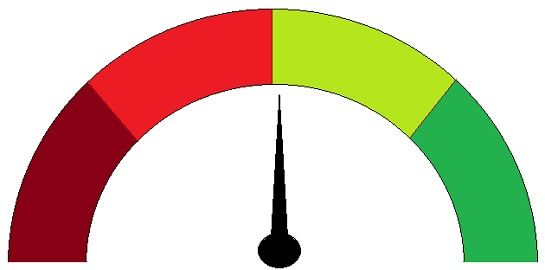 Credit history of a person has a great impact on his/her financial profile, as it is used by banks, utility companies, employers, landlords etc. to determine the creditworthiness. So, it is important for one to be aware of his/her credit report and credit score, compiled by the credit reporting agencies, also known as credit bureaus. A credit report is a document which reflects the history of credit behaviour of a person.
Credit history of a person has a great impact on his/her financial profile, as it is used by banks, utility companies, employers, landlords etc. to determine the creditworthiness. So, it is important for one to be aware of his/her credit report and credit score, compiled by the credit reporting agencies, also known as credit bureaus. A credit report is a document which reflects the history of credit behaviour of a person.
Based on the information on the credit report, a three digit number is generated with the help of a mathematical formula which is called as a credit score. A number of people often misconstrue credit score for a credit report, so here we provide you all the important differences between credit report and credit score.
Content: Credit Report Vs Credit Score
Comparison Chart
| Basis for Comparison | Credit Report | Credit Score |
|---|---|---|
| Meaning | Credit report refers to a document which complies the credit and payment history of a person. | Credit score is a number that determines the creditworthiness of a person, on the basis of his/her credit history. |
| Dependency | It depends on a person's credit history. | It depends on a person's credit report. |
| Determines | How the consumer manages credit in the past and outstanding debt. | Effectiveness of a consumer in managing money and debt. |
| Judgement based | No | Yes |
Definition of Credit Report
A credit report is described as a snapshot of a person’s credit history, prepared by the credit agency considering their personal details and their bill-paying habits.
It encompasses information related to that person’s identity such as name, address, birth date, Social Security Number, etc. and his credit details like car loans, education loans, credit card accounts, history of meeting obligations and the amount owed to creditors. Further, a credit report also includes information concerned with any court verdict against the person or if the person has filed bankruptcy.
A credit report is like a report card which gives a detailed idea of how a consumer handles debt in the past? Along with that it also evaluates how often a consumer pays debt on time? Do you take more debt than you can afford?
Definition of Credit Score
Credit Score is defined as a three-digit number which determines the chances of repayment of the debt, by the debtor. It highlights the information of the credit report and helps to anticipate, what are the chances of repayment of the debt, when it becomes due for payment.
This information is used by the banks and financial institution to determine whether to grant a loan or not, on what terms loan is to be sanctioned and the interest rate at which the loan is granted. The credit score is based on a number of factors, which are, number, type and age of the accounts, outstanding debt, collection action against the person, payment of the bill, currently available credit and so forth.
The higher the credit score the greater is the person’s financial trustworthiness and the more are the chances to qualify for the loan, apartment rental and so forth.
Key Differences Between Credit Report and Credit Score
The points given below are substantial so far as the difference between credit report and credit score is concerned:
- A credit report can be understood as the summary of an individual’s credit history, typically concerned with his/her ability to discharge obligations. Conversely, Credit score is nothing but a statistical number which decides a person’s financial trustworthiness, depending on his/her credit history.
- A credit report is a standalone document that summarizes a consumer’s credit history, issued by the credit bureaus. On the other hand, the credit score is based on the details of the credit report.
- A credit report is maintained by credit bureaus taking into account a number of factors such as payment history, credit history, types of credit and so forth, with an aim of determining how the consumer manages credit in the past. As against, credit score implies the total number of points, that helps to determine the creditworthiness of a person and what are the possibilities that a person is going to repay the loan and make payments on time.
- While a credit score is judgement based, a credit report is not.
Conclusion
Credit report and credit score are of utmost importance to the banks, money lenders, landlords and other parties, as it anticipates the risk involved in lending money to a person and to reduce losses as a result of bad debt. It is also helpful to the bank to decide whether a person is eligible for the loan or not, the rate of interest to be charged and terms of credit.






Leave a Reply